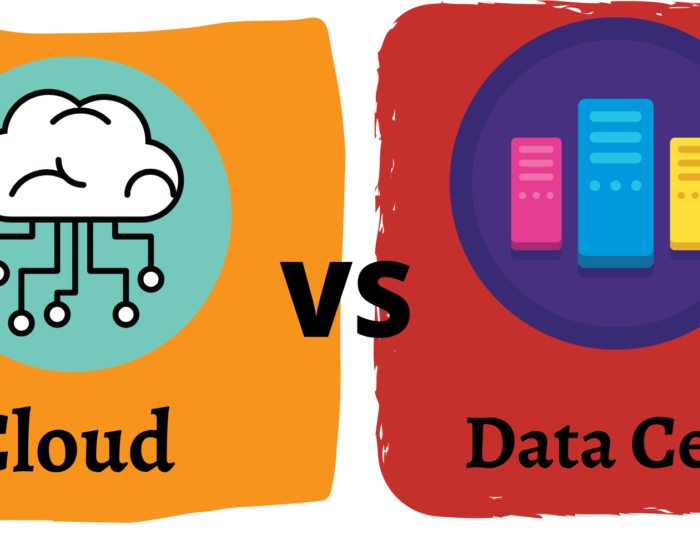Traditionally, businesses have been relying on data centres which were the focal point for running day-to-day operations, housing applications, and data all in one place. These data centres typically demanded physical facilities with sufficient square footage to house the infrastructure equipment.
This model worked pretty well – until the advent of virtualization.
Businesses soon began to see the benefits of this new dimension that offered abstraction of servers, networks, and storage – regardless of their physical location. Such cloud infrastructure enabled businesses to be more agile and position their workloads based on regulatory and geographical impacts.
As businesses are rethinking their IT infrastructure strategies to include cloud rather than data centres, service providers, too, are rethinking their offerings. Many service providers like ISPs, telecoms and existing DCs are venturing to expand their offerings to include cloud services within domestic boundaries.
But, many apprehensions prevent them from taking the leap – one of the main concerns is that setting up a cloud business is a massive investment in terms of physical space, servers, network, storage, and all the software components that go along with it.
Also Read – The Rise of Cloud Repatriation: Balancing Cost and Performance in the Cloud Landscape
Another reason why starting a cloud business seems risky to people is because of how new it is to some of the regions in the world. Data Centers are old and well-established businesses with multiple experts in the market and are easy to start with.
It is familiar.
Starting a cloud business is uncharted territory for a lot of people, and that’s why they hesitate to begin with.
There are a lot of questions that need to be answered before businesses can step into the cloud space and set up their own domestic public cloud:
- Is owning a data centre the basis of setting up a cloud service?
- Will the infrastructure need to be as huge as AWS, Google Cloud, or Azure?
- What about the housing of all the servers etc.? What is the physical space requirement?
- How long will it take to startup?
- What about the costs?
- How soon will I see returns?
To help answer all these questions, let’s compare the two – data centre services and cloud services.
Data Center VS Cloud Services
It’s a common misconception that you need excellent infrastructure and many servers to start a cloud business. New entrants hesitate to venture into such a business, assuming that the initial startup cost will be very high, and many drop the idea even before beginning.
But, if you work out the economics, you will find that it is possible to start a cloud business with minimum servers and without too much investment. Whether you are a new entrant or are already in the data centre space, here’s a comparison that you can use to make your decision easier.
| Cloud Services | Data Center Services |
| Ideally, existing data centres are best suited to move to offer cloud services quickly. They possess the key assets required to expand into a public cloud business sooner, and cloud services are the next best move any DC could make. | Starting a data centre requires a large amount of capital, decent physical storage space, and permissions from authorities related to power. It also requires designing and planning the placement of racks, cables, etc., in the organization. |
| Scaling a cloud services business requires a comparatively less amount of investment when compared to data centres. | Data centres require a huge amount of investment when thinking of scaling them. |
| On the other hand, Cloud businesses offer higher margins with comparatively low CAPEX.Our previous post explains how to work out the economics of cloud business. | If you are on the edge of deciding whether to start by providing DC services or cloud, it’s important to understand that data centres are high on Capex and offer very low margins. |
| Cloud is a virtualized environment that can be set up using limited space, in a matter of months. Cloud services also have more scalability capacity and options as compared to Data centres. | Datacenter services are more of a real estate play, and many servers, networks, and storage infrastructures are involved. For housing, this infrastructure and space requirements also need to be considered. Data Centers can take months or years to set up and have limited scalability options. |
| Cloud services business has comparatively less fixed overheads cost. They have only 2 fixed overheads you need to worry about – hardware and the software components. | Data centres have higher fixed overheads as compared to cloud services like a building for physical storage, cooling power, etc |
| On the other hand, Cloud businesses can offer high profitability and fast payback. | Again, with data centres being high CAPEX, ROI comes much later. |
If you would like to read more about where and how you can market these services, read more about how to get your first 20 customers!
So, which is the better business to be in?
It’s always a debate – whether you are an existing data centre business or are starting with cloud services. However, for data centres, venturing out into the cloud business would be an additional revenue stream that can be built upon their existing assets. It is easy to get started with your cloud services.
While starting a cloud business with IndiQus, you can begin by dedicating only 2 racks to business and USD 5000 in CAPEX. You can have a minimum investment budget and expect a high ROI. It is also quick – we can set up your cloud business for you in 4 weeks only. Due to the high demand, it’s an easy-to-sell and profitable service. If this interests you, you can sign-up for a demo and have a look at what we have to offer!

With 13+ years of experience in business development, general management, and operations, Rishab brings his learnings from industries such as internet services, FMCG and industrial goods to Apiculus. A graduate of the Indian School of Business, he handles overall business operations at Apiculus focusing on partnerships, alliances, marketing and sales.

